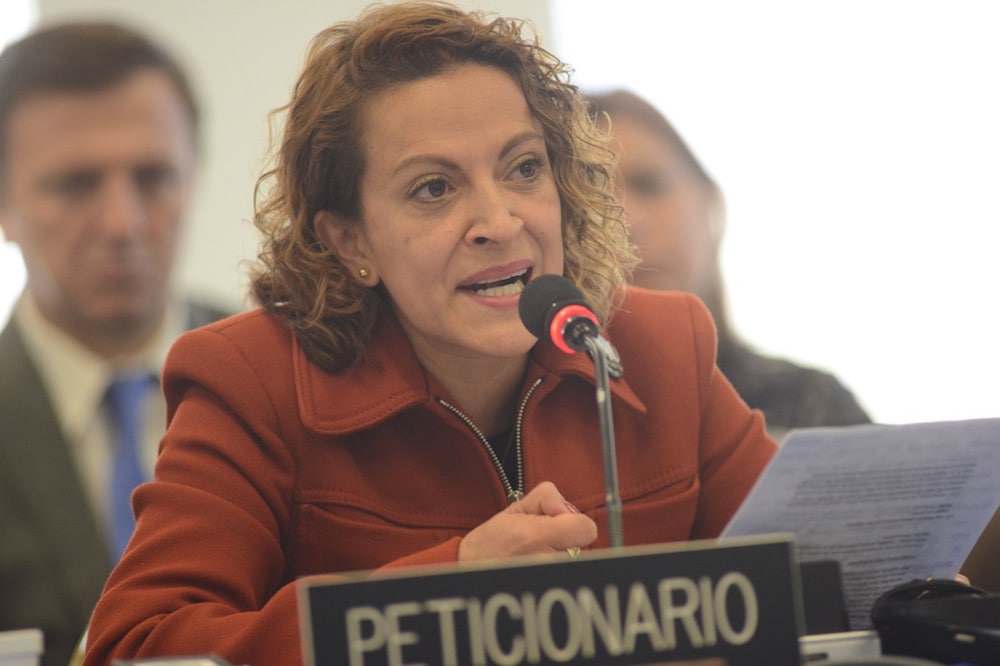“We see the withdrawal of the state as another obstacle to achieving justice for Jineth Bedoya. IFEX will continue to stand with her. After 20 years, this will not deter her in her fight. The misogynistic culture that allows women to be treated in this way must come to an end,” said IFEX Executive Director Annie Game.
“It is essential for the state to continue participating in the hearing on the Jineth Bedoya case. The state’s presence and the manner in which it presents its defence play a key role in determining reparations for victims and guarantees for freedom of expression.”
IFEX, the global network of more than 100 organisations dedicated to promoting and defending freedom of expression and information, has followed journalist Jineth Bedoya’s case for more than a decade. Throughout that time, the difficulties faced by the journalist in obtaining justice have been obvious. The current process before the Inter-American System of Human Rights and the various decisions that are made within this framework play an essential role in determining reparations for the crimes Bedoya suffered.
“We see the withdrawal of the state as another obstacle to achieving justice for Jineth Bedoya. IFEX will continue to stand with her. After 20 years, this will not deter her in her fight. The misogynistic culture that allows women to be treated in this way must come to an end,” said IFEX Executive Director Annie Game.
As part of its support for Bedoya’s case, IFEX presented an amicus curiae brief with arguments regarding the case’s relevance for freedom of expression and the rights of women in Colombia and the broader region. Attacks on women journalists have particular characteristics, such as the sexual violence to which Bedoya was subjected. IFEX’s observations continue to give cause for concern today, and take on even more importance in the current context.
As IFEX explained in its submission to the Court, this case demonstrates that the violent censorship experienced by women journalists has special characteristics that go beyond what their male colleagues face. These types of violent actions are perpetuated and strengthened by the stereotypes inherent in a misogynistic culture. The manner in which the Colombian state comports itself in this hearing will delineate the way forward for reparations and protection of the fundamental rights of women – and all people – in Colombia.
The 15 March decision by state representatives to withdraw from the public hearing is unprecedented at the Inter-American Court of Human Rights. It demonstrates indifference, if not contempt, for the violence suffered by Bedoya and sends a negative message to all journalists who are fighting against impunity.
The Colombian state has an opportunity to provide an example at the regional level against those who attack freedom of expression by returning to the hearing and resolving any procedural disagreements. The statements and actions of state representatives have the ability to promote a healthy environment for the press, particularly for women journalists. The state’s presence and the manner in which it presents its defence play a key role in determining reparations for victims and guarantees for freedom of expression.



